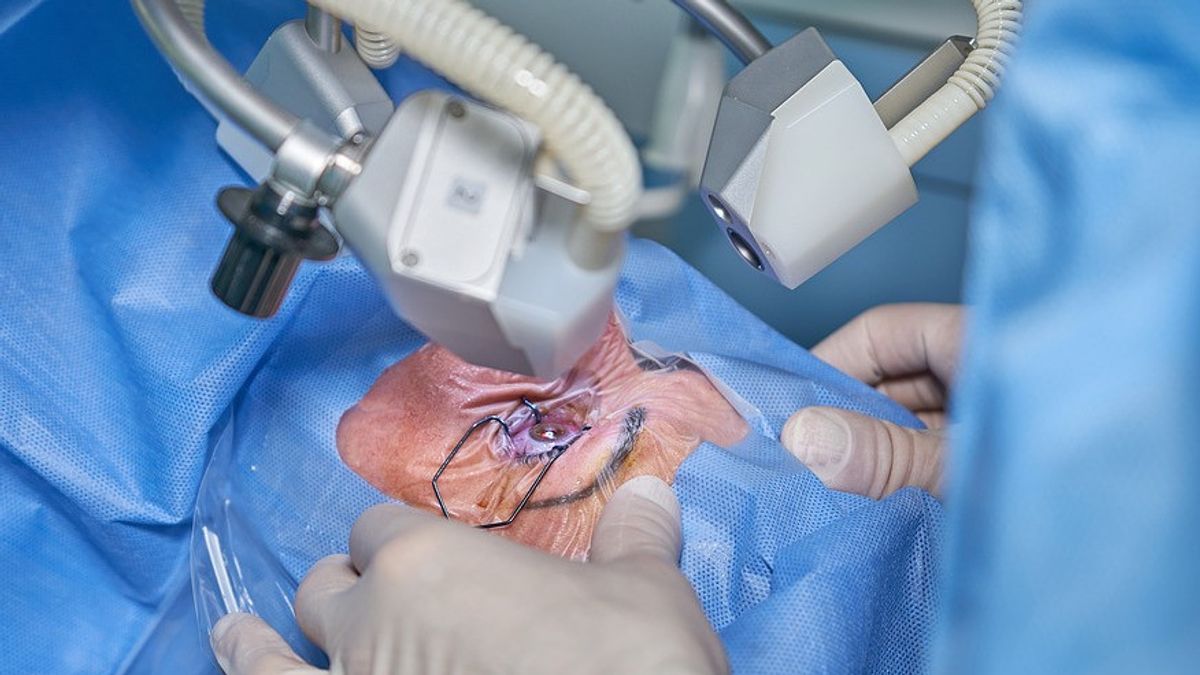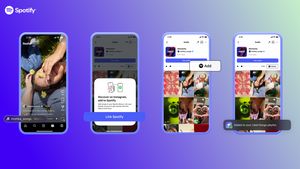YOGYAKARTA - It is very important to know the type of eye surgery borne by BPJS Kesehatan, especially for those who want to perform eye surgery due to blurry vision.
Quoted from the official website of BPJS Kesehatan, health service guarantee procedures for eye surgery. So, what are the types of eye surgery borne by BPJS Kesehatan?
Types of eye surgerys borne by BPJS Kesehatan
The type of eye surgery borne by BPJS Kesehatan is cataract surgery. Cataracts are degenerative diseases that are the number one cause of blindness in the world.
This disease is caused by the aging or trauma process that causes tissue changes in the eye.
The symptoms are diverse, ranging from blurred views such as fog covered, double views, glare when they see light, and others.
BPJS Kesehatan bears cataract operations with medical indications in the form of:
- A sharp decrease in vision with a vision of less than 6/18.
- There are other conditions, such as facomorphic glaucoma, facolytic glaucoma, lens discolization, and anisometropia.
- Visualization of fundus in the eye that still has the potential for vision needed, while cataracts make it difficult for visualization;
- Traumatic cataracts and complications.
- Cataracts in infants and children.
Cataract operation services borne by BPJS Kesehatan are carried out with the action:
- Phacoemulsification
- Small Incision Cataract Surgery (SICS).
- Extra Capsular Cataract Extraction (ECCE).
- Intra Capsular Cataract Extraction (ICCE).
Procedure for cataract operations administration to be borne by BPJS Kesehatan
The following are several procedures that should be carried out by BPJS participants who want to access free cataract operation:
- Visiting First Level Health Facilities (FKTP)
JKN-KIS participants who want to access free cataract operations services are required to go to the First Level Health Facility (FKTP) to check the condition of the eye.
The doctor will examine the patient's eye condition thoroughly and suggest further treatment recommendations if indicated there are health disorders.
If you need to get treatment to the eye specialist, the doctor will provide a referral letter to the Advanced Referral Health Facility (FKRTL).
- Check for Advanced Referral Health Facilities (FKRTL)
After receiving a referral letter, JKN-KIS participants can go to the clinic which is a further level referral health facility (FKRTL).
In poly or eye specialist, the doctor will decide whether abnormalities in the eyes of participants need surgery or not.
If it requires surgery, the doctor will suggest and schedule operations, according to applicable terms and rules.
As information, BPJS issued new rules related to the guarantee of cataract operations. At present, only a certain level of vision gets services, namely a vision of less than six per eighteen.
Cataract surgery guarantees are also carried out if there are other medical conditions, such as facomorphic glaucoma, facolithic glaucoma, lens dislocation, and anisometropia.
Another eye disease borne by BPJS
In addition to bearing the cost of cataract operations, BPJS Kesehatan also provides subsidies for the purchase of glasses for minus and cylindrical eyes in accordance with applicable regulations, which can be done every two years.
However, the fund subsidy provided by BPJS Kesehatan is only for spherical lenses with a minimum size of 0.5 diopters and a minimum cylindrical lens of 0.25 diopters.
SEE ALSO:
How to get subsidies for purchasing glasses from BPJS Kesehatan
Here's how to get a subsidized purchase of glasses from BPJS Kesehatan:
- Visiting BPJS Kesehatan's optics.
- Bring a KTP (Identity Card).
- Bring the BPJS Kesehatan card.
- Bring a doctor's prescription that has been legalized from the BPJS Kesehatan office.
- Purchase glasses in the optics of BPJS Kesehatan partners and select the desired frame.
- Waiting for the glasses to finish.
Glasses obtained by JKN-KIS participants will be adjusted to their respective class ceilings.
Thus information about the type of eye surgery borne by BPJS Kesehatan. To get other interesting information, keep reading VOI.ID.
The English, Chinese, Japanese, Arabic, and French versions are automatically generated by the AI. So there may still be inaccuracies in translating, please always see Indonesian as our main language. (system supported by DigitalSiber.id)

















